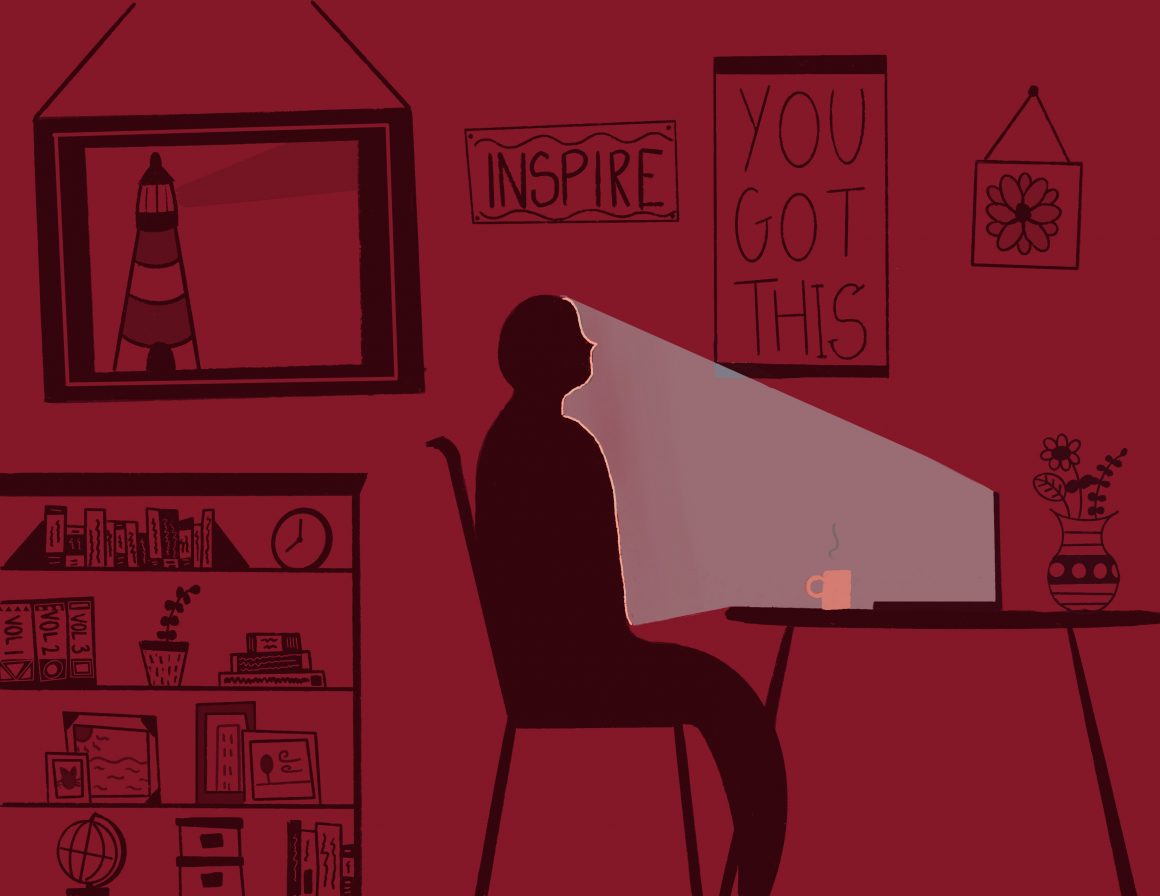
The innovative Unified Protocol group therapy program helps students to survive and thrive during the pandemic stress
By Jen Sidorova, February 8 2021 —
It is not surprising that the impact of the pandemic on student mental health is devastating. Thankfully, there is a great solution for common issues such as social isolation, anxiety and depression.
The Gauntlet interviewed Dr. Dan Devoe, a postdoctoral scholar at the Mathison Centre for Mental Health Research & Education in the Cumming School of Medicine’s Hotchkiss Brain Institute (HBI) about the innovative online therapeutic program offered by Student Wellness Services at the University of Calgary. Along with Dr. Gina Dimitropoulos, associate professor in the Faculty of Social Work, he is leading the online group therapy program which helps students to manage anxiety and emotions during COVID-19.
The virtual therapy developed by the team of researchers in collaboration with the Student Wellness Services is called the Unified Protocol (UP). The UP is a cognitive-behavioural therapy program. It allows therapists to move away from disease-specific targeting and focus on psychological symptoms, not only on anxiety and depression. The UP can also help students do better academically or socially. It has taken elements from the different types of cognitive-behavioural therapy (CBT) as is used for for anxiety, psychosis and depression. There are common elements across the therapies, and the UP creators combined them into one program. This approach allows the U of C research team to target anxiety for issues such as the COVID-19 pandemic and then tailor the information towards students during the pandemic.
“For reducing anxiety, I think one huge thing is that these students, who are stressed for numerous reasons, whose academic life has changed, can access therapy from the comfort of their home,” said Devoe.
Many students are suffering from social isolation as they have not seen their friends and family members since March. The UP virtual therapy helps them to interact in a non-academic setting with their peers and to be able to talk about the issues that they are experiencing. The online therapy provides relief to students from an anxiety standpoint to know that they are not the only ones suffering.
The UP has numerous advantages in comparison with in-person group therapies. Students do not have to commute and spend extra time on transportation. The risk of being infected and infecting others disappears since therapy can be done from the comfort of one’s bedroom. The other advantage of the online therapy is that it provides programming such as breaking off into small groups in Zoom. Students can use the chat box on the side in Zoom to make comments and use emoticons such as the “thumbs up.” Normally, these features are absent in group therapy.
Even though the video conferencing technology is not innovative, given the current circumstances, the use of a Zoom platform in group therapies is ground-breaking because of the lack of fear of getting infected. The U of C research team could also reach a broad spectrum of people across the university. It is not a secret that during the COVID-19 pandemic students experience high levels of distress, depression and fears of being infected or infecting others.
“We know that the Unified Protocol has been very effective at impacting anxiety, depression, functioning and quality of life,” said Devoe. “So, what we’ve done is we’ve taken what others have done and applied into a new situation, to the student body. I think that that’s very unique in and of itself.”
The program is only available for U of C students who are under the age of 30. The researchers decided to restrict the eligibility criteria to avoid having a participant who might be a teaching assistant or in charge of a younger student. The other reason for this age restriction is the creation of a homogenous group for research purposes that allows the team members to focus on people with similar symptoms and experiences.
The researchers expect the UP program to develop and evolve in the future, as it is essential to assess the program’s effectiveness. To do this, measuring outcomes of the UP through monitoring symptoms in the students is one option. Another possibility for the research team is to offer an ongoing semester-based program for students, regardless of the pandemic. After the pandemic, as the vaccines take place, the program can be offered with a physical group, but the online groups might remain for rural populations. The province has a high demand for group therapies such as the UP.
“We have quite a huge rural population of youth, and nobody’s reaching out to these youth, no one’s providing these sorts of programs for them,” noted DeVoe.
For the team of researchers, even before COVID-19, the Zoom platform seemed like a good option for giving the ability to provide therapy to people in rural communities. Devoe and the research team are planning to launch a large randomized controlled trial comparing the effectiveness of the UP study with other services offered by the SU Wellness Centre to see if the UP is more effective than usual treatments.
The UP program offers great help for a struggling student population, and the online format has many advantages that could help these students to survive and thrive during uncertain times.
